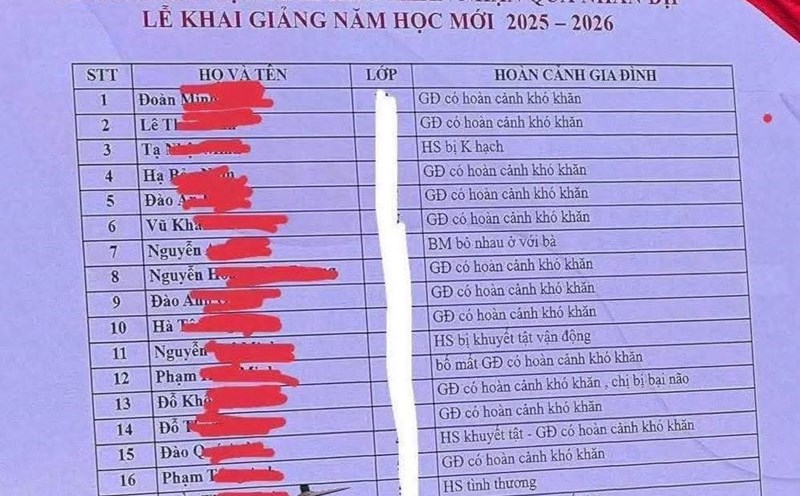Patient T.N.V (15 years old, Binh Tan ward, Ho Chi Minh City) had a fever and a long cough before the opening day. Worried that her child would not be able to go to school and thought he would only have a common cold, Ms. P.T.K.P, the mother of patient V, bought medicine to give her son to drink at home. However, after 9 days, the condition did not improve, the child had to be hospitalized and diagnosed with acute pneumonia.
"At first, I thought my child would only have a mild cough, and if he took medicine for a few days, he would get better so he could be present at the opening day. Unexpectedly, the disease became severe and became pneumonia. Seeing my child hospitalized at the opening ceremony, I was very heartbroken. I kept asking him how long he was discharged from the hospital to go back to school with his friends, Ms. P shared.
Currently, the health of patient T.N.V has stabilized, is continuing to be monitored and treated at Gia Dinh People's Hospital and will be discharged in the next few days.
The case of patient H.T.P (7 years old, Go Vap ward, Ho Chi Minh City) was also hospitalized in the first days of the school year. In the morning, the grandmother (Ms. T.T.T) bought a box of salted sticky rice for the child to eat, but the child had not finished using it. In the afternoon, she gave the children the left sticky rice. About 1 hour later, the child had a severe abdominal pain and vomiting, so he had to be hospitalized for emergency care at night. The child was diagnosed with digestive disorder.
"Usually, I really like to eat sticky rice, I think it's okay to leave it for later. Unexpectedly, my child had a continuous abdominal pain and vomiting, I felt very regretful. Now he still hasn't been able to get to class, I keep asking sadly when I will see her and her friends again," Ms. T. choked up as she shared.
According to Dr. Pham Thi Hong Oanh, Deputy Head of the Department of Pediatrics, Gia Dinh People's Hospital, the school year is the time when children are susceptible to many diseases due to changes in daily life and collective contact. Commonly, respiratory diseases ( influenza, pharyngitis, bronchitis, pneumonia), respiratory diseases (measles, typhus, chickenpox) and diseases transmitted through food and contact (hand, foot and mouth disease, digestive disorders, diarrhea).
The doctor noted: "In addition to diseases caused by erratic weather, we have received many cases of children with digestive disorders. Children may vomit or have acute diarrhea due to viruses and gastrointestinal infections, but if not treated promptly, it can become an epidemic or food poisoning.
To protect students' health, parents need to ensure that their children are fully vaccinated. Practice hand washing before eating and after going to the toilet. Choose safe foods, do not reuse the food for long. Provide a balanced diet, supplement green vegetables, fruits, and drink plenty of water. When children have symptoms of high fever, rash, vomiting, diarrhea or abdominal pain, they should be taken to a medical facility immediately.
"It is necessary to closely coordinate with families, schools and school health workers to detect cases early, isolate and treat them promptly, avoiding outbreaks in schools," Dr. Pham Thi Hoang Oanh emphasized.








